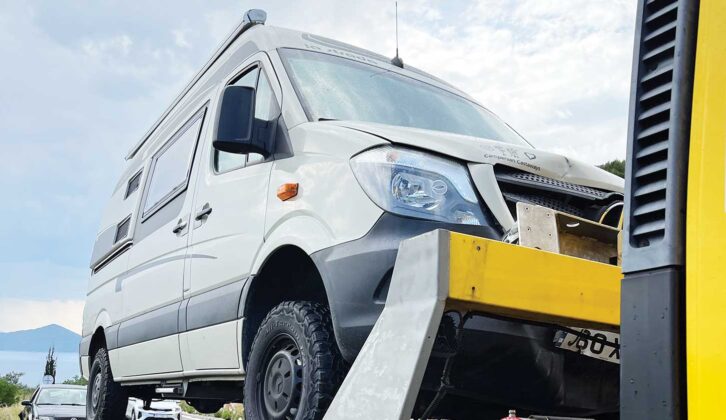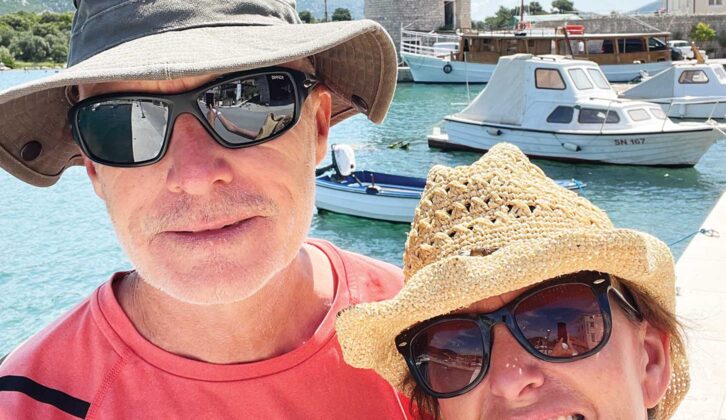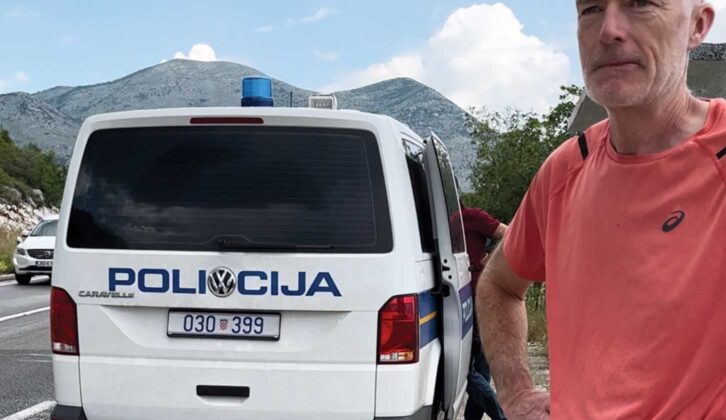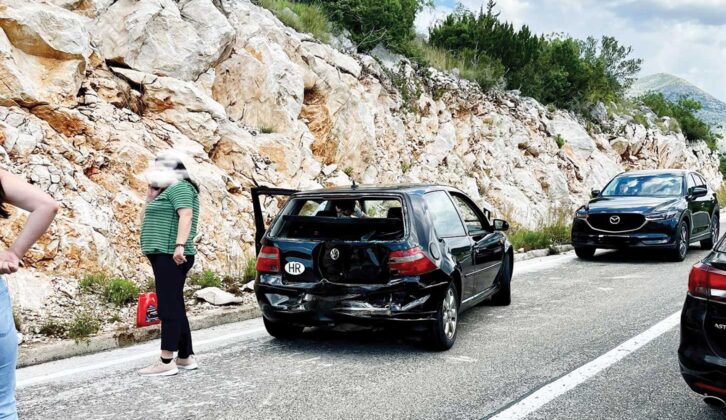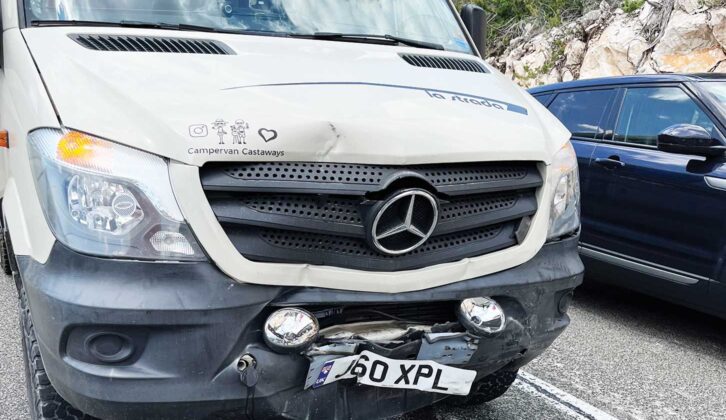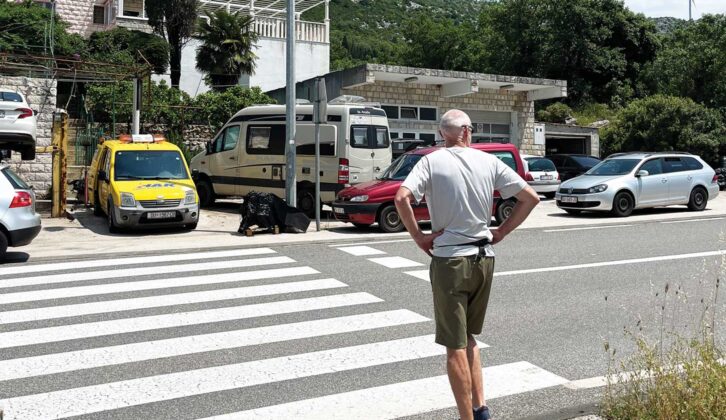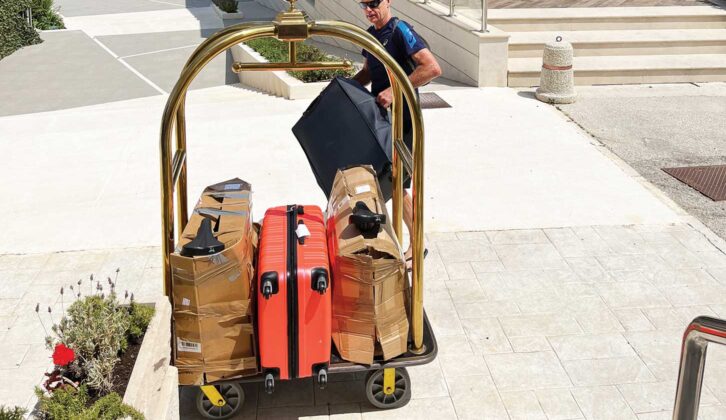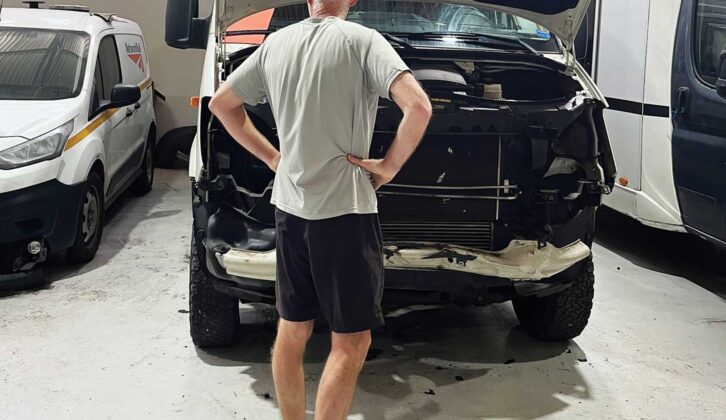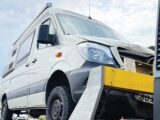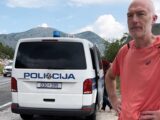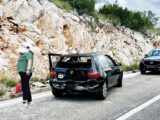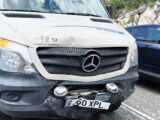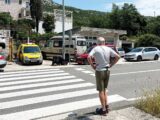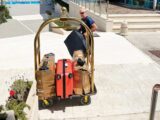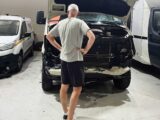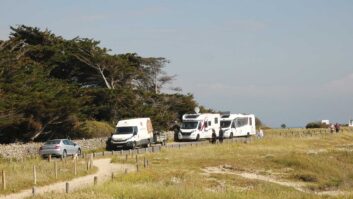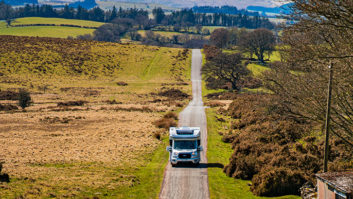Thankfully, a motorhome accident is fairly uncommon, but it’s something that can happen, as it did to us when travelling overseas. Last summer, our long-awaited three-month trip to Greece ended rather suddenly on a busy stretch of road, close to the vibrant tourist destination of Dubrovnik, in Croatia.
For us, what began as a beautiful, normal Saturday morning became one of our most memorable days on tour, and for all the wrong reasons.
Unfortunately, we were involved in a collision with a car, resulting in our motorhome being damaged beyond a quick-fix repair. Not something that you expect when planning a motorhome tour of Europe!
Dealing with the accident was a steep learning curve, but has not deterred us from enjoying our favourite pastime. To put it into context, this is our first motorhome accident in some 23 years of overseas travels, during which we have covered thousands of miles without incident.
Ultimately, not only is an accident like ours rare, it could also have happened anywhere in the UK. The big difference is that being far from home made everything a bit more complicated.
If you’re thinking of setting off on a tour to Europe, do check out our guide to the pros and cons to consider when picking between ferry or Eurotunnel too.
An unfortunate encounter
The road along Croatia’s beautiful Dalmatian coast is as scenic as they come. After a brief visit to the pretty village of Ston, an hour from Dubrovnik, a car overtook us on chevron lines.
Before we knew it, the driver had made an emergency stop in front of us, on a clear stretch of road, without need or reason. Although Nigel instantly reacted, the impact was inevitable, and our Sprinter ploughed into the rear of the car.
Everything happened so quickly, it was hard to comprehend. The next thing we knew, the car was on the opposite side of the road. Luckily, oncoming traffic managed to swerve to avoid it. Although we were bracing ourselves for an impact from behind, thankfully, it never came.
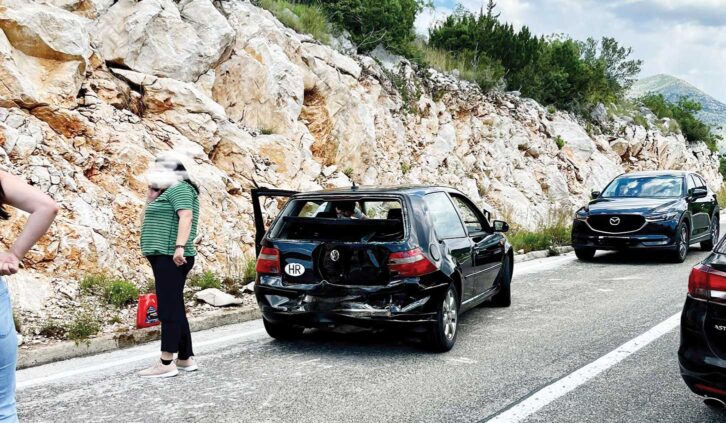
Local people at the scene stopped their cars to help. Fortunately, there were no injuries and we didn’t feel anything at all in the Sprinter cab.
Our low speed and Nigel’s excellent braking reaction were enough to lessen the impact, but we could see immediately that our motorhome was too badly damaged to drive. The radiator had drained, and it was obvious that it was going to require professional repairs.
Nigel and I went on autopilot. There was no drama, we simply got on with the task in hand. Luckily, an ambulance came quickly, and the crew helped to direct the traffic, along with the local police who also arrived on the scene and usefully, spoke quite good English.
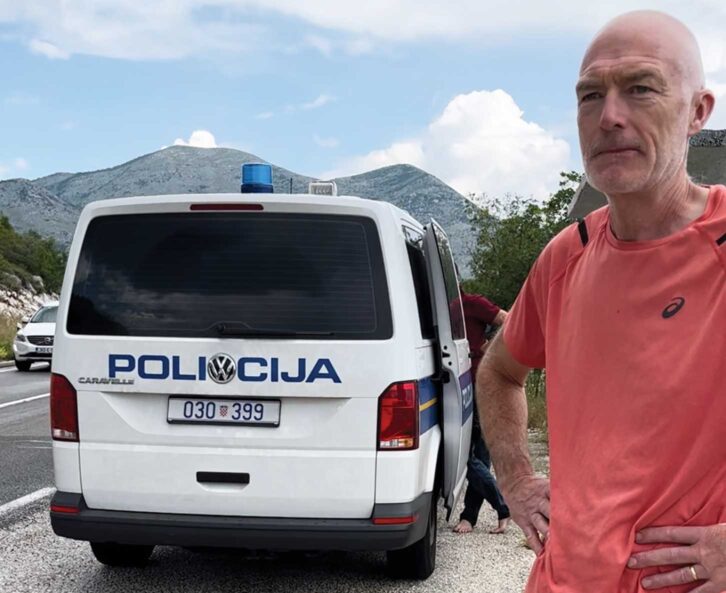
I got on the phone to our insurance company. Unfortunately, none of the numbers listed on our policy worked from abroad. I tried Googling it, but our internet signal was poor, and it was taking ages for the page to load. But eventually, I found a number that got me through to the insurance provider in the UK.
While I called our insurer, Nigel was putting out the warning triangle and helping to alert approaching traffic. It was a matter of doing what we could to prevent further incidents.
After what seemed like ages, specialist police came from Dubrovnik, an hour away. Initially, they took statements and marked out the road. In the back of their van, they had an office set-up, where they logged everything on a laptop. They took our insurance policy, log-book, driving licences and passports and kept them for a couple of hours, while they noted all of the accident information at the scene.
Although the police only spoke a little English and our Croatian was equally limited, between us, we managed to communicate enough to provide all of the information about what had happened. Throughout, they were courteous and helpful.
Dash cam footage
We have a dash cam (see: the best dash cams for a motorhome if you’re after one), so we asked them if they’d like to see the footage, and got the impression it was quite an unusual accessory to have in Croatia.
They were only too happy to view the video, there at the roadside. Nigel downloaded the recordings onto his phone, using the dash cam app, because they wanted a copy. The police were grateful for the footage, asking us to email it to another officer in the back of their van, who was putting all the information together.
By now, the driver of the car (who had been driving barefoot among other things), admitted liability. He came over to us several times to apologise. He even asked if we wanted to stay at his house. We politely declined the offer, simply keeping our distance and saying nothing.
Our insurance company arranged for us to be picked up at the scene, although we didn’t know much about this until a big yellow truck arrived to collect us and our campervan.
Overcoming the language barrier, we managed to establish that the driver of the recovery truck, a local man, had been called to take us back to his garage, about a 10-minute drive away.
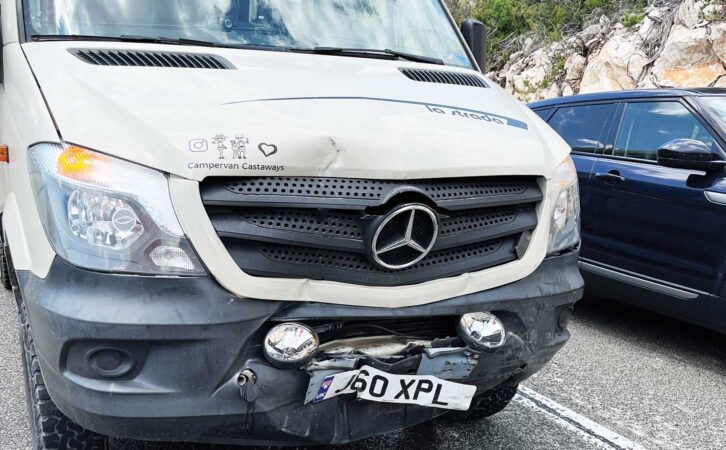
Little did we know that this was where our ’van would stay for another few weeks, before starting the long repatriation journey back to the UK.
By now, it was a few hours after the accident and the police were just finishing off logging the details. The driver of the car was still at the scene, with the police dealing with him separately.
As our campervan was moved onto the recovery truck, the police handed back our documents and we said our farewells.
The driver of the car received a fine at the scene. However, the police only took card payments and the driver only had cash. Unbelievably, he asked us to pay his fine on our credit card! The police looked on in disbelief, while we decided to keep our thoughts to ourselves.
Being prepared is essential
Thankfully, accidents are pretty rare, but as we discovered, they do happen, and if you are abroad at the time, things can get a bit complicated.
We found that being prepared really was half the battle. Fortunately, we had paper copies of important documents, and we found this very useful, especially for the insurance policy.
For example, despite our love of technology and preference for keeping everything on our devices, it was much easier to have the paperwork in our hands, to make notes on and give to the police.
Knowing where your documents are is crucial when you’re in a difficult situation, so having a folder containing everything, and a dedicated place where we knew it would be, was essential.
Then there’s the all-important safety kit to consider, including reflective jackets and the warning triangle, which we keep in our cab door. That way, we know straight away where to find them, which is vital in handling any incident.
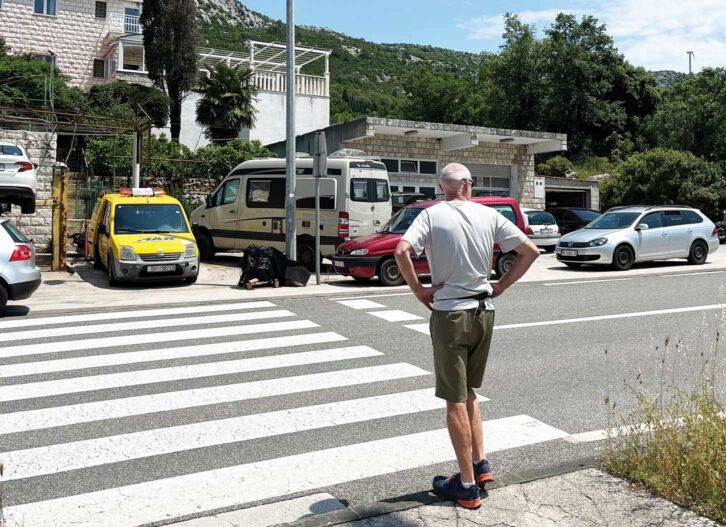
Unluckily for us, our accident happened on a Saturday, and it was a bank holiday weekend, too. The team at our insurance company dealing with accidents abroad only works weekdays.
In the meantime, over those first few hours and days of telephone calls, we were given incorrect information on several occasions. We heard promises that accommodation was being booked, a taxi was coming to pick us up, and even that our campervan repatriation would begin that day. All of which simply never happened.
After spending a couple of nights in our badly damaged campervan and realising the insurance company’s promises weren’t going to materialise, we took it upon ourselves to find a suitable hotel and book our flights home.
However, once the ‘accident abroad’ team were back at their desks, it rapidly became obvious that nothing was going to happen without them.
Repair or repatriation
In different circumstances, we and the insurance provider might have chosen to try to have our campervan repaired in-country. But in this case, it wasn’t a viable option, so it was decided to go with repatriation instead.
This is quite a complicated process and not one we knew anything about before. First, the insurer uses a UK repatriation company, which waits for other vehicles in need of repatriation. Basically, they didn’t just drive all the way to Croatia for our campervan – they also collected vehicles in Austria and Germany along the way.
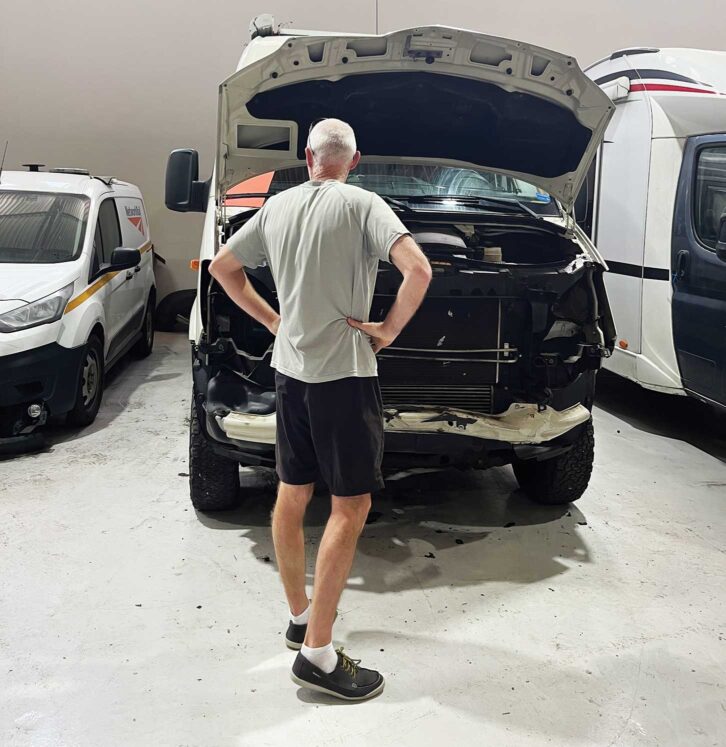
All told, the journey from Croatia to the UK insurance-approved repairer took two-and-a-half weeks, so it was a total of five-and-a-half weeks from the date of the accident.
Fortunately, our insurer had a list of repairers for us to choose from, close to home. And while we were still in Croatia, we phoned around to find the best one to deal with our Sprinter.
As it turned out, this was a superb garage. The insurance company and the garage handled the claim between them, so it was out of our hands.
Getting back on the road
Has the accident put us off touring abroad? No, if anything, it has reminded us just how much we love this incredible way of seeing the world and we can’t wait to carry on where we left off.
There really is no better way to travel and this unexpected incident was a timely reminder that we need to appreciate that fact.
Hopefully, we’ll be back on the road by the time you read this – we’re already planning and looking forward to more road trips overseas.
Having a ‘van specific sat nav can help you navigate when you’re abroad too – if you’re looking for one, check out our best motorhome sat nav guide to see our favourite picks on the market.
Take a look at the “common insurance misunderstanding” that could cost motorhome owners £10,150 when touring in Europe too.
If you’ve enjoyed reading this article, why not get the latest news, reviews and features delivered direct to your door or inbox every month. Take advantage of our brilliant Practical Motorhome magazine SUBSCRIBERS’ OFFER and SIGN UP TO OUR NEWSLETTER for regular weekly updates on all things motorhome related.
